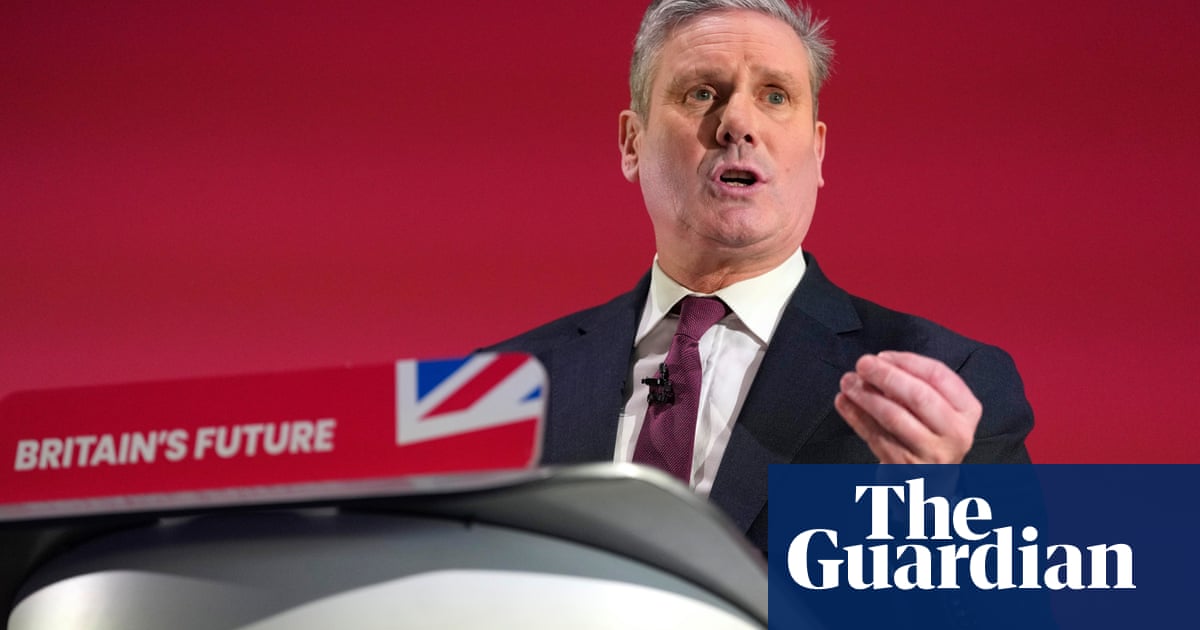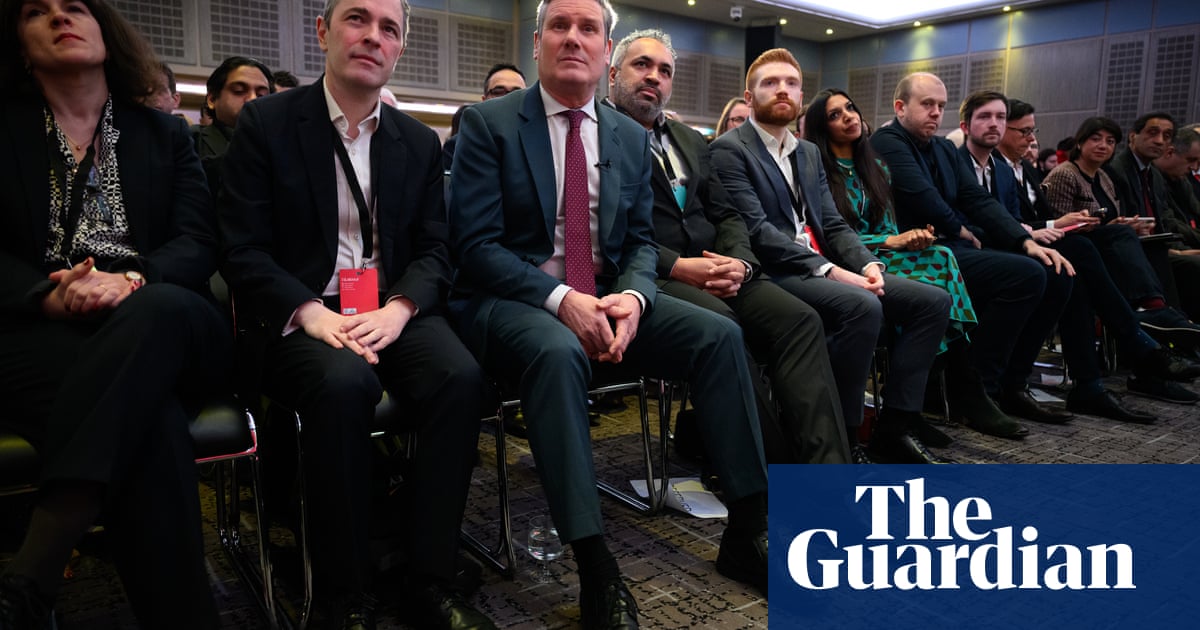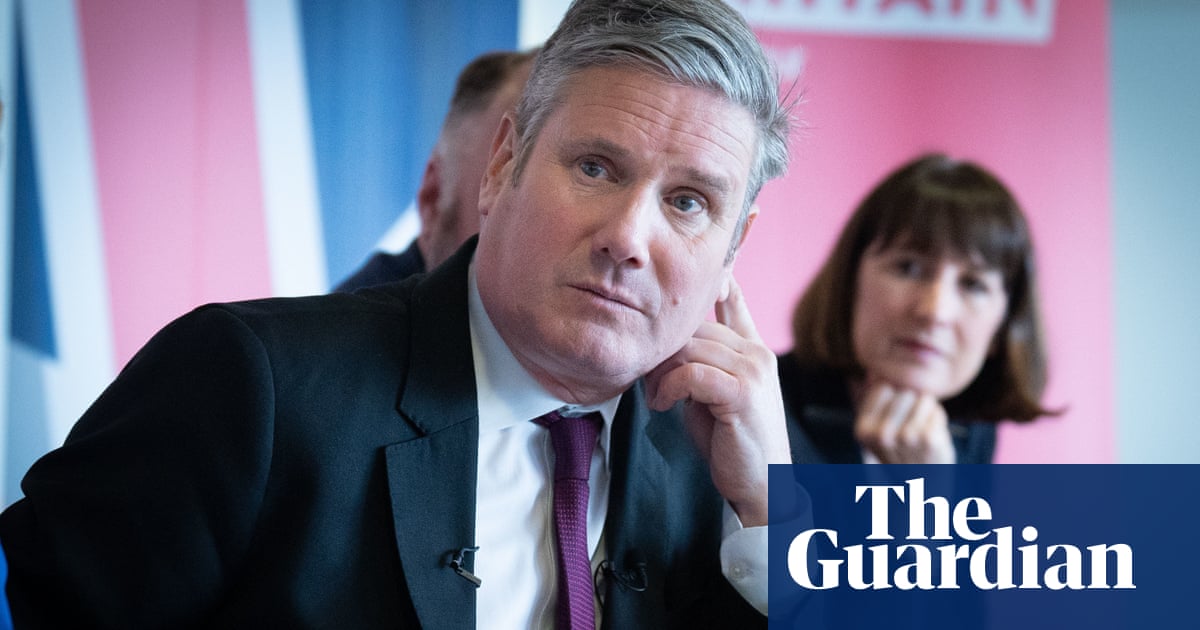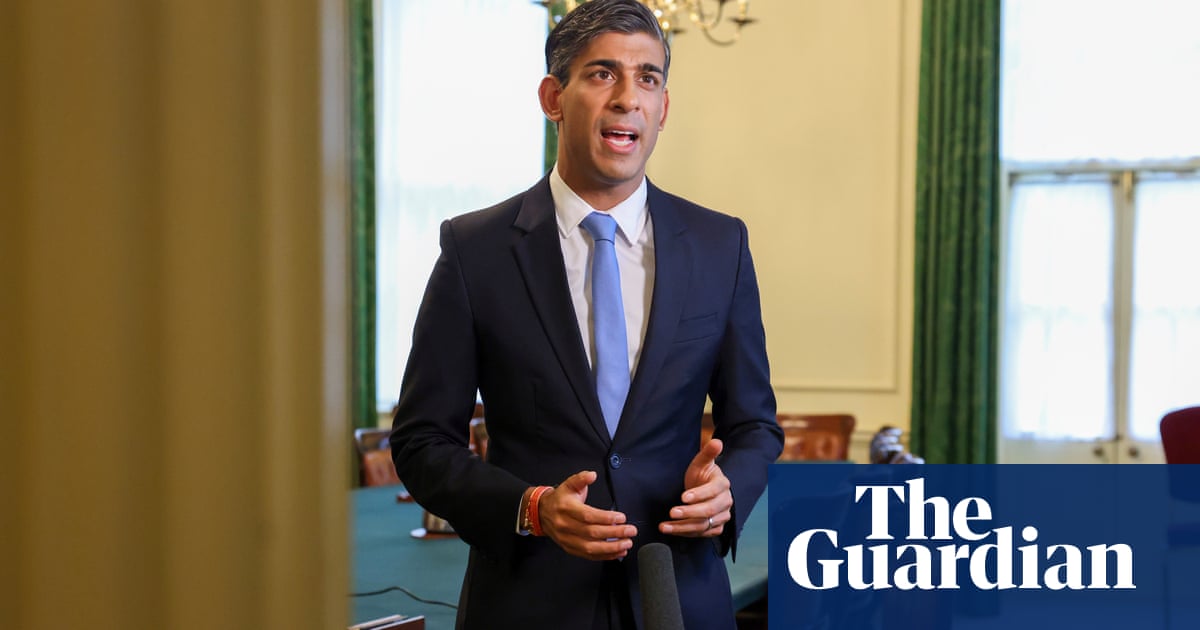
Labour has spent the past few weeks performing a series of U-turns on previously announced policies as it finalises its manifesto, culminating in Thursday’s announcement of a huge cut to its green spending plans.
Beyond the cuts to the £28bn annual spending pledge, party insiders have also let it be known they no longer intend to abolish the House of Lords, might reduce their planned tax on private equity profits and will not legislate to create a national care service.
All this is part of Starmer’s plans to create a “bombproof” manifesto, which he set out at the end of last year and is intended to ensure the party is ready in case the prime minister, Rishi Sunak, calls an election in May. That process reached its first major deadline on Thursday, but is likely to dominate much of the leadership’s thinking for several months to come.
“Part of the timing around today … is that all the shadow cabinet had to have their final proposals in today, fully funded, so that we can start putting them together for a manifesto,” Starmer told reporters on Thursday as he laid out the reasons for dropping the £28bn-a-year green plans.
A shadow minister added: “The [£28bn] green prosperity plan looked like a massive slush fund so it didn’t survive bomb-proofing.”
Starmer and his advisers have a sense of the main elements of the manifesto. The remaining green pledges, including a publicly owned energy supplier and a green sovereign wealth fund, remain. So does a set of proposals to strengthen trade union rights and employment protections known as the “new deal for working people” – despite pressure from corporate lobbyists to drop it.
More retail proposals will include a promise to set up free breakfast clubs in every primary school and to use money from taxing non-doms to pay for more doctors’ appointments at weekends and evenings.
“Most of us got our policy proposals in a long time ago,” said one shadow cabinet minister. “Anyone who is still trying to work out what they want to do at this stage has just not done their homework.”
Another added: “For most of us, this process has been stress free, but for some it has forced them to answer questions they have not properly resolved until now.”
Important policy questions remain. Bridget Phillipson, the shadow education secretary, has promised to end the current free hours system of funding childcare and replace it with something else entirely. But a review she has commissioned into what the new system should look like will not report until later this year.
Phillipson has also promised to reform university tuition fees to help bring graduates’ monthly repayments down, but has still not said how this would happen.
Labour officials will now spend the next few weeks scrutinising the policy proposals in detail to work out if they can be achieved and afforded.
Ravinder Athwal, the policy chief in charge of writing the manifesto, has been told to have a final text ready by mid- to late-March.
Unlike in previous elections, the party will not produce separate manifestos for different policy areas. One senior official said it would be a “lean, muscular document with a narrative running through it, rather than just a long list of policies”.
Alongside the manifesto, Labour also plans to publish a costings document setting out how its policies will be funded. The same official said it would be “almost of equal importance to the manifesto itself – we will make a real virtue of that”.
When an election is finally called, the party will hold a “clause V meeting” with party officials and trade union leaders to formally approve the manifesto, and only then will the public get to see it.
Meanwhile, work will continue on finalising the text. Jonathan Ashworth, the shadow Cabinet Office minister, has been “red-teaming” the proposals, looking for ideas that might fall apart in the intense scrutiny of a general election campaign.
Once that has been done, Lucy Powell, the shadow Commons leader, will lead a separate process to check the policy proposals can actually be turned into legislation.
Shadow cabinet ministers will be called into meetings with Powell and a team of others including Starmer’s chief of staff, Sue Gray, to thrash through how their policies would work in law.
Those meetings will happen later in the year and possibly into government, party officials say, and are likely to prove one of Gray’s most important contributions to the party’s policy platform.
For now, by junking the £28bn-a-year green spending plan, Starmer has given his party two important signals: first, that he is not willing to let anything undermine Labour’s claim to fiscal responsibility, and second, that he will not tolerate the manifesto being delayed.
“I don’t want to hold it up because whatever has been said about when it might be, whatever Sunak needs to do for an early election, he has done,” he said. “I can’t afford to let my deadline slip.”
This article was amended on 9 February, it was originally stated in error that the money raised from taxing non-doms would be used to train more nurses and midwives.












